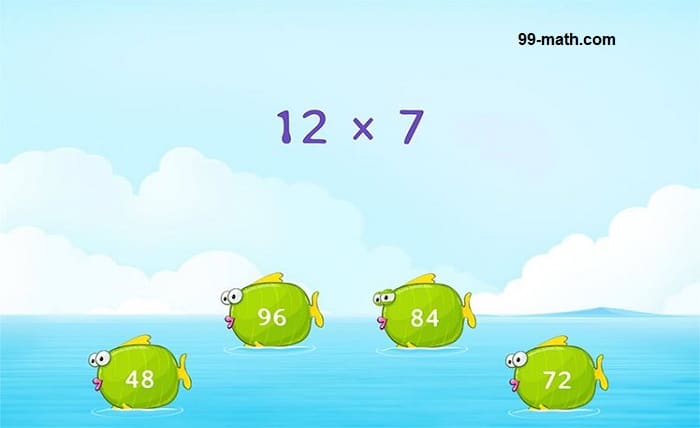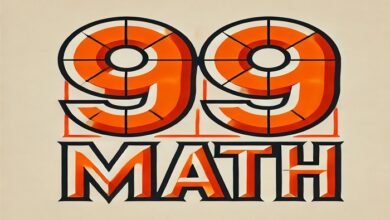72 Engaging Math Games to Make Learning Fun

Struggling to make math enjoyable? Explore 72 math games (yes, 72!) for all ages and skill levels. Turn practice into playtime and conquer math concepts with confidence!
Beyond Textbooks: Unveiling the Power of Math Games
Math games can transform the way we learn. Instead of dry drills and rote memorization, games introduce a fun and engaging element, making math concepts more accessible and enjoyable for students of all ages.
A World of Play: Exploring Math Games for Different Age Groups
This list caters to a wide range of learners. Whether you’re a young child mastering basic addition or a high school student tackling algebra, there’s a math game waiting to be discovered!
Early Math Fun (Ages 5-8): Building a Foundation with Playful Activities
- Counting Games: Classic games like Candyland or Chutes and Ladders reinforce counting skills.
- Matching Games: Memory or Concentration games with numbers and shapes promote recognition and memorization.
- Dominoes: Double-sided dominoes encourage basic addition and subtraction practice.
- Sorting Activities: Sort objects by color, size, or shape, fostering critical thinking and categorization skills.
Elementary Math Mastery (Ages 9-12): Reinforcing Core Concepts through Play
- Multiplication Games: Bingo or flashcard games with multiplication facts make memorization engaging.
- Division Dash: Create a board game where players solve division problems to move forward.
- Fraction Frenzy: Board games or card games involving fractions solidify understanding of fraction concepts.
- Perimeter and Area Adventures: Use building blocks or Legos to explore perimeter and area in a hands-on way.
- Logic Puzzles: Sudoku or KenKen puzzles challenge problem-solving skills and logical reasoning.
Middle School Math Marvels (Ages 12-14): Applying Concepts in Fun Ways
- Algebraic Bingo: Fill a bingo card with algebraic expressions and solve equations to mark squares.
- Geometry Scavenger Hunt: Hide objects around the house and provide clues involving geometric shapes to find them.
- Probability Pizzeria: Simulate running a pizza restaurant, calculating probabilities of different orders.
- The Price is Right (Decimals & Percentages): Estimate prices of items and calculate discounts to win the game.
- Board Game Design Challenge: Design a board game that incorporates math concepts you’re learning.
High School Math Heroes (Ages 15-18): Deepening Understanding with Strategic Games
- Math Olympiad Challenges: Online platforms offer challenging math problems that require creative thinking.
- Escape Room Math: Solve math puzzles to “escape” a virtual room, applying various math concepts.
- Financial Literacy Games: Simulate investing or managing a budget to learn about personal finance.
- Statistics Showdown: Analyze data sets from sports or real-world scenarios to practice statistical analysis.
- Coding Games: Learn basic coding by creating games that involve mathematical calculations.
Beyond the 72: Uncovering a Universe of Math Games
These 72 games are just the tip of the iceberg! Explore educational websites, apps, and board games specifically designed to reinforce math skills in a fun and interactive way.
The Power of Play: How Math Games Enhance Learning
Math games offer numerous benefits. They promote engagement, boost problem-solving skills, improve critical thinking, and foster a positive attitude towards math.
Learning Together: Making Math Games a Family Activity
Math games are a fantastic opportunity for family bonding. Play together, learn from each other, and create lasting memories while strengthening your math skills.
Beyond the Game: Applying Math Skills in the Real World
Math games can spark a curiosity for applying math concepts in everyday life. Encourage children to calculate grocery bills, estimate distances, or use measurements in cooking projects.
Read more about: thefamilystar
Conclusion
Math games are not just child’s play. They offer a powerful tool to make learning fun and engaging for all ages. So, ditch the boredom of traditional drills, grab a game, and embark on a journey of math exploration and discovery!
FAQs
- Are math games effective for all learners? Math games can be beneficial for most learners, but some students might require additional support or different teaching methods.
- How much time should I spend playing math games each day? Even short bursts of gameplay can be effective. Focus on quality time spent engaged with the game and the concepts it reinforces.
- What if I’m not good at math? Everyone can benefit from math games! Start with games that target areas you find comfortable, gradually progressing to more challenging ones.
- Can math games replace traditional math instruction? Math games are a valuable supplement




